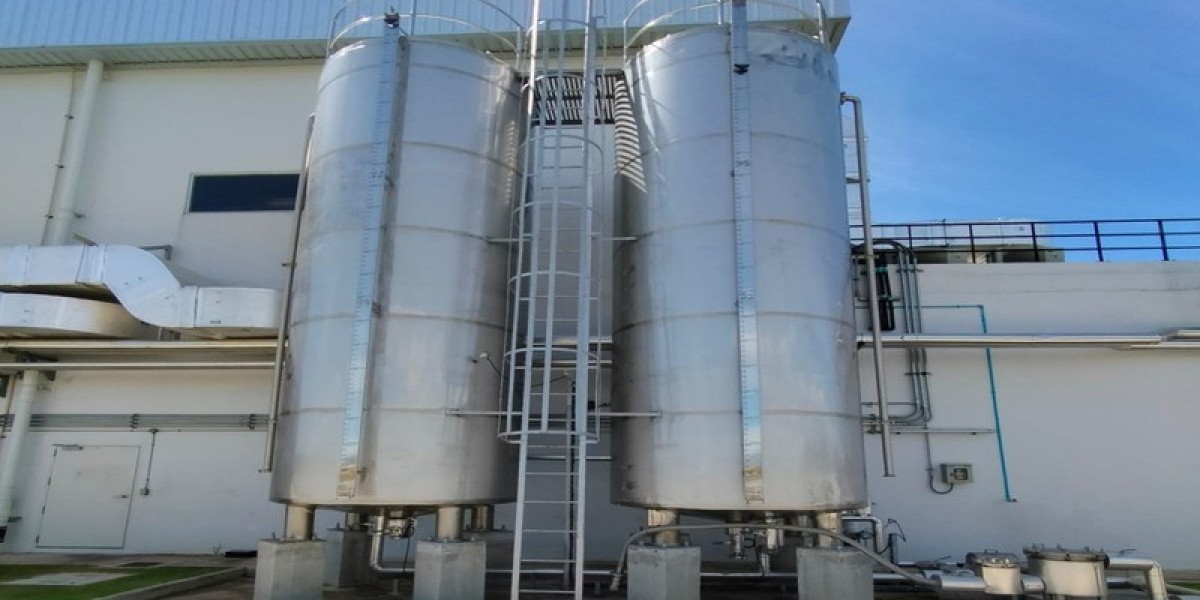In today’s fast-paced food industry, efficiency, hygiene, and durability are critical factors for any processing facility. One piece of equipment that plays a central role in achieving these goals is SS storage tanks. These stainless steel tanks are widely used across food processing plants for storing liquids, syrups, oils, and other ingredients. Their robust construction and hygienic properties make them indispensable for modern facilities aiming for high quality and compliance with food safety standards.
What Are SS Storage Tanks?
SS storage tanks are containers made from stainless steel, designed for storing liquids, semi-liquids, and other food-grade materials. Unlike traditional storage vessels, these tanks are resistant to corrosion, rust, and chemical reactions. They are often equipped with features such as temperature control, agitators, and sanitary valves to ensure safe and efficient storage.
Stainless steel, being durable and non-reactive, ensures that the stored products retain their taste, quality, and safety over time.
Top 10 Benefits of Using SS Storage Tanks in Food Processing
1. Hygienic and Food-Safe
Hygiene is paramount in food processing. SS storage tanks are made from food-grade stainless steel, which prevents contamination and ensures compliance with international food safety standards such as HACCP and GMP. Their smooth surfaces make cleaning easier, reducing the risk of bacterial growth.
2. Durability and Longevity
Unlike conventional tanks made from plastic or carbon steel, stainless steel tanks are highly durable. They resist corrosion, rust, and chemical reactions, which ensures a longer lifespan and reduces replacement costs.
3. Temperature Control
Many SS storage tanks come with insulated or double-jacketed designs that allow for temperature control. This feature is essential for storing temperature-sensitive ingredients like chocolate, dairy, or syrups, ensuring consistent quality during production.
4. Reduced Contamination Risk
The non-reactive nature of stainless steel ensures that the stored materials do not interact with the tank. This eliminates risks of off-flavors, chemical contamination, or discoloration, which is crucial for maintaining product integrity.
5. Enhanced Production Efficiency
SS storage tanks allow for bulk storage of ingredients, which streamlines the production process. Ingredients can be stored, monitored, and dispensed efficiently, reducing downtime and improving overall workflow.
6. Versatility in Applications
These tanks are highly versatile and can be used for storing liquids, syrups, oils, dairy products, sauces, and even dry powders when designed accordingly. Their adaptability makes them suitable for various food processing sectors, from confectionery to beverage production.
7. Ease of Maintenance
Maintaining stainless steel tanks is relatively easy compared to other materials. Many tanks are compatible with CIP (Clean-In-Place) systems, allowing for thorough cleaning without disassembly. Regular maintenance ensures the longevity of the tank and the quality of stored products.
8. Customizable Design
Modern food processing plants often require storage solutions that fit their specific production lines. SS storage tanks can be customized in terms of size, capacity, and additional features such as agitators, temperature sensors, and discharge valves, making them highly adaptable to individual business needs.
9. Regulatory Compliance
Food safety regulations are strict, and non-compliance can lead to severe penalties. Using SS storage tanks ensures adherence to international standards for hygiene, contamination prevention, and product safety, giving manufacturers peace of mind and credibility in the market.
10. Cost-Effective in the Long Run
While stainless steel tanks may have a higher upfront cost, their durability, low maintenance, and reduced waste make them cost-effective over time. Investing in SS storage tanks minimizes losses due to spoilage, contamination, or frequent replacements.
Applications of SS Storage Tanks in Food Processing
SS storage tanks are used across multiple sectors within food processing:
Beverage Industry: For storing juices, syrups, and other liquid ingredients.
Dairy Production: For milk, cream, yogurt, and other dairy-based products.
Chocolate and Confectionery: For holding chocolate, syrups, and liquid fillings.
Sauces and Condiments: For ketchup, mayonnaise, oils, and sauces.
Bakery Ingredients: For liquid flavorings, fats, or syrups used in dough production.
Their versatility, safety, and hygiene make them indispensable in maintaining product quality across all these sectors.
Conclusion
Investing in SS storage tanks is no longer optional for modern food processing facilities—it’s a necessity. From enhancing hygiene and safety to improving efficiency and reducing costs, these tanks offer unmatched benefits for food manufacturers.






